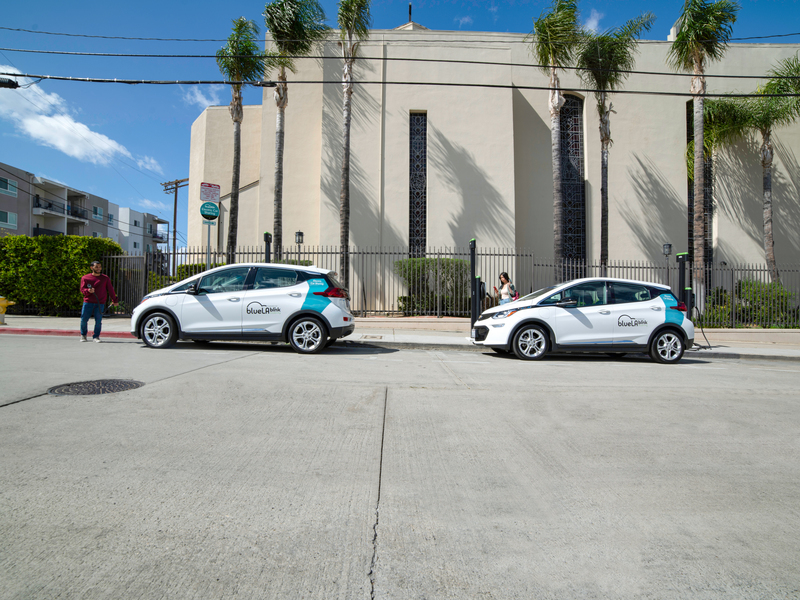The electric vehicle (EV) sector has witnessed rapid development in recent years, driven by the need to combat climate change and reduce dependence on fossil fuels. As the world embraces sustainable transportation, electric cars have emerged as the future of mobility. In this article, we will explore the history and evolution of electric cars, delve into the underlying technology, discuss noteworthy electric car concepts, and highlight the innovations and future trends in the EV industry. Additionally, we will shed light on the environmental and economic impact of electric vehicles.
Before we dive into the details, let’s take a brief look at Blink Mobility, a leading player in the EV industry. Blink Mobility is committed to providing greener transportation solutions and offers electric vehicle rental services in the Los Angeles, CA area. With a focus on sustainability and convenience, Blink Mobility is revolutionizing the way we travel.
History and Evolution of Electric Cars
The Early Years of Electric Vehicles
Contrary to popular belief, electric vehicles actually predate gasoline vehicles. The early years of electric cars can be traced back to the 19th century, with inventors like Thomas Davenport and Robert Anderson paving the way for electric vehicle technology. These early electric cars showcased the potential of electric power for transportation and laid the foundation for future advancements.
Modern Resurgence of Electric Vehicles
Electric cars experienced a resurgence in the late 20th century, driven by the need for cleaner and more fuel-efficient vehicles. The introduction of hybrids, such as the Toyota Prius, marked a significant milestone in the adoption of electric vehicle technology. However, it was Tesla that truly revolutionized the EV market. With their sleek designs, long-range capabilities, and cutting-edge technology, Tesla electric cars became highly sought after, making EVs popular among consumers worldwide.
Understanding Electric Vehicle Technology
How Electric Cars Work
To understand electric cars, it’s essential to grasp the basic mechanisms behind their operation. Electric cars rely on electricity as their power source, which is stored in a battery and used to drive an electric motor. The battery powers the motor, and the motor turns the wheels, propelling the vehicle forward. This simple yet efficient mechanism eliminates the need for internal combustion engines and reduces reliance on fossil fuels.
Battery Technology and its Evolution
One of the key components of electric vehicles is the battery. Over the years, battery technology has undergone significant advancements. From the early lead-acid batteries to the lithium-ion batteries used in today’s EVs, battery technology has made electric cars more practical and efficient. Improved energy density, longer range, and faster charging capabilities have made electric vehicles a viable and sustainable mode of transportation.
Noteworthy Electric Car Concepts
Vision EQXX by Mercedes-Benz
Mercedes-Benz’s Vision EQXX concept represents the cutting edge of electric vehicle technology. With its aerodynamic design and long-range capabilities, the Vision EQXX aims to push the boundaries of electric mobility. This concept car showcases the potential for high-performance electric vehicles while prioritizing efficiency and sustainability.
Apple’s Project Titan
Apple’s secretive automotive endeavor, Project Titan, has piqued the curiosity of tech enthusiasts and car enthusiasts alike. Although details about Project Titan are scarce, reliable information and speculations suggest that Apple is working on an electric car with autonomous capabilities. Apple’s expertise in software and design could potentially disrupt the automotive industry and redefine the future of electric vehicles.
Sony Vision-S
Sony’s Vision-S concept car combines advanced entertainment systems with autonomous capabilities. Designed with passenger comfort and entertainment in mind, the Vision-S demonstrates the integration of technology and mobility. With its sleek design and innovative features, Sony’s Vision-S showcases the potential for electric vehicles to redefine the in-car experience.
Innovations and Future Trends in Electric Vehicles
Wireless Electric Vehicle (EV) Charging
Wireless charging is an emerging technology that has the potential to revolutionize the electric vehicle charging experience. Companies like WiTricity are making significant advancements in wireless charging systems, allowing electric vehicles to charge effortlessly without the need for physical connectors. This convenience and ease of use are expected to accelerate the adoption of electric vehicles in the coming years.
Vehicle to Grid (V2G) Systems
Vehicle to Grid (V2G) systems enable electric vehicles to not only consume electricity but also supply it back to the grid. This technology has the potential to transform electric vehicles into mobile energy storage units, contributing to the stability of the power grid and facilitating the integration of renewable energy sources. V2G systems have the potential to revolutionize the way we think about energy storage and distribution.
Autonomous Electric Vehicles
The integration of autonomous technology with electric vehicles opens up new possibilities for safer and more efficient transportation. Companies like Tesla have made significant progress in developing autonomous driving capabilities through advanced software and hardware. However, challenges such as regulatory frameworks and safety concerns need to be addressed before fully autonomous electric vehicles become a common sight on the roads.
The Impact of Electric Vehicles on the Environment and Economy
Environmental Benefits
Electric vehicles play a crucial role in reducing greenhouse gas emissions and combating climate change. By eliminating tailpipe emissions and relying on electricity from renewable sources, electric cars significantly reduce the carbon footprint of transportation. Additionally, life-cycle analysis of electric vehicles debunks the myth of “dirty” EVs, as the environmental impact of electric vehicles is lower compared to conventional vehicles.
Economic Impact
The rise of electric vehicles has the potential to create new job opportunities and stimulate economic growth. The shift towards electric mobility requires a skilled workforce for manufacturing, maintenance, and infrastructure development. Furthermore, as the automotive industry undergoes a transformation, electric vehicles present new avenues for economic development and innovation.
The future of transportation is undoubtedly electric. From the history and evolution of electric cars to the innovations and future trends in the industry, electric vehicles are reshaping the way we commute. Concepts like Mercedes-Benz’s Vision EQXX and Apple’s Project Titan showcase the potential for advanced electric car technologies, while wireless charging and autonomous capabilities redefine the driving experience. Moreover, electric vehicles bring about significant environmental benefits and drive economic growth.
Blink Mobility, with its commitment to sustainability and electric vehicle rental services, is at the forefront of this transformation. As we look ahead, the future is indeed electric, and it holds immense promise for a greener and more sustainable future.
Recommend for You
Stay Informed
Join our mailing list for hot news and company updates.







